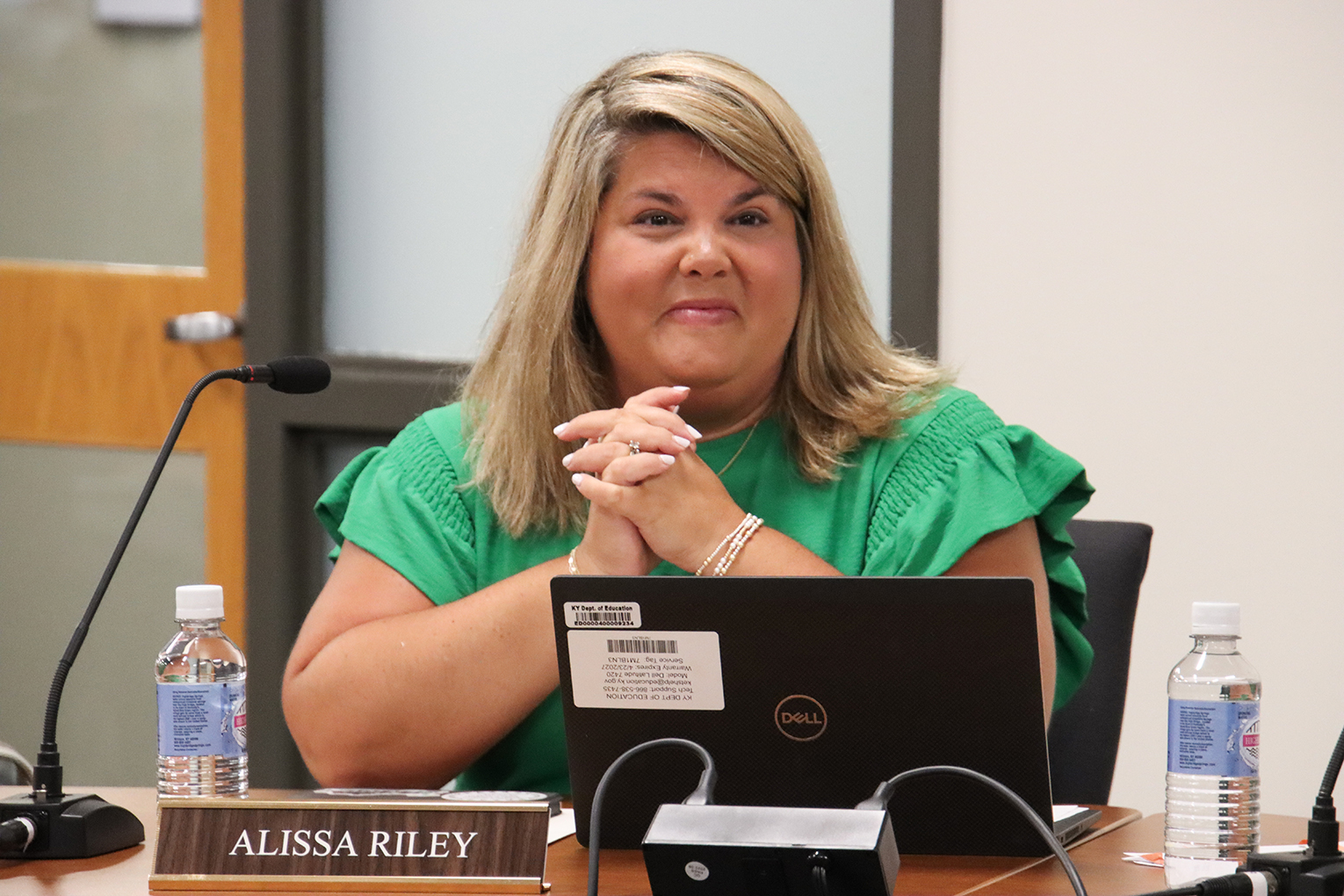By Joseph Harris
joseph.harris@education.ky.gov
As a small child, I would impress my mom by packing my briefcase with papers, stacking stuffed animals on my bed and pretending to teach them their ABCs. Of course, I transformed the back of my bedroom door into a chalkboard.
My mother and I rejoiced in my imagination, even when it meant scrubbing my messes off the door. My briefcase, of course, was really a small suitcase my aunt had given us to pack for overnight trips to the hospital with my dad; nevertheless, it was mine.
My childhood was spent in the poverty of rural Appalachia. Poverty in my neck of the woods meant there wasn’t always food to eat. It meant we rarely had new school supplies and there was never transportation to and from school events. We wore secondhand clothing, and at times, we didn’t have running water because our pipes would freeze and burst as our water came from a natural spring behind our house.
Many would think that my family chose to live this way, but we really didn’t. My dad was a carpenter and farmer, but he was in and out of the hospital during most of my childhood. Because he was in a wheelchair and unable to work for several months at a time, my mom spent her time caring for him. When she could, she did odd jobs on the side. Still, she always encouraged me to work toward a better life for myself. She believed I could push through the hard times and achieve my dreams of becoming an educator.
Over the years, however, I began to believe the stinging stereotypes about poor kids from the mountains. I doubted that I had what it took to be successful. After all, no one in my family had attended college. I found myself sinking into the background at school.
Fortunately, in 11th grade I was placed into the classrooms of a couple of amazing teachers. They gave me a voice both within and outside of their classrooms by gearing lessons toward my interests and encouraging me to become involved in leadership opportunities.
Because of these remarkable teachers, and the courage they gave me to believe in myself, I realized I could bring my childhood dreams to life and join the ranks of other dedicated eastern Kentucky educators who have inspired generations of students to rise above the circumstances in their own backyards.
Looking back over the stepping stones of my educator journey, I see how my own background cultivated certain passions inside of me. My teachers showed me the power of my voice, in spite of the circumstances I had allowed to silence it.
This year, I am working as a hybrid teacher leader on special assignment. This means I teach English at Lawrence County High School in the mornings and the rest of my time is spent working with the Kentucky Department of Education to activate and support teacher leadership and effectiveness. This role has given me the time and opportunity to not only further develop my own passions in education, but also to support other teachers in developing their own passions around current education constructs such as student voice.
All students deserve the same opportunity I had to develop a voice within and outside of the classroom, and I believe any teacher is capable of helping a student develop that voice. As part of the Professional Growth and Effectiveness System, teachers already administer a student voice survey that provides data about the classroom environment from the students’ point of view. A teacher can use this data to reflect and inform his or her Professional Growth Plan; however, moving beyond a one-time survey to authentically integrate student voice into classroom planning and decision making is a crucial next step for Kentucky educators.
According to the 2010 MET Study, “when asked the right questions, in the right ways — students can be an important source of information on the quality of teaching and the learning environment.” All of us have the ability to ask these types of questions. As part of my work this year, I’ve created this online space and this Twitter account where teachers can find student voice resources and classroom spotlights where student voice is a powerful driving force in both teacher and student growth.
Teachers who are ready to “Get The Most Out Of Student Voice,” should:
- Be ready for honest feedback.
- Always bring the data back to students.
- Consider multiple student voice tools and data points throughout the year.
Tapping into the power of student voice creates student-teacher partnerships that shape a learning environment centered around students. My 11th-grade teachers showed me the power of my voice, and it’s time we empower all Kentucky teachers to do the same.
Joseph Harris is the English team lead at Lawrence County High School and a teacher leader on special assignment with the Kentucky Department of Education. He has taught English, special education, and speech and communications. Harris currently serves on the Kentucky Writing Program Advisory Committee and was a 2013-15 Hope Street Group Kentucky Teacher Fellow. He created studentvoiceKY, a project to provide student voice and choice resources for Kentucky teachers.




[…] Source: The power of student voice […]